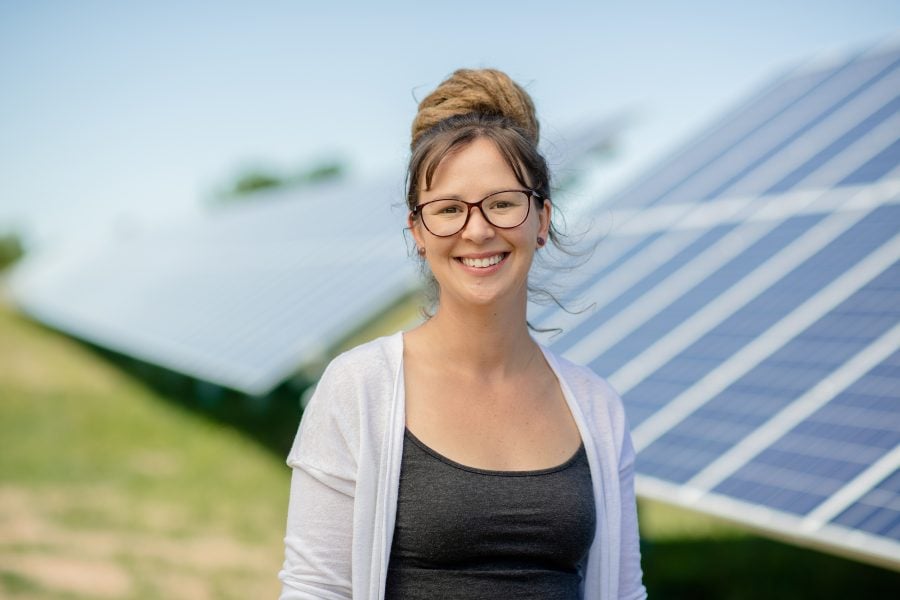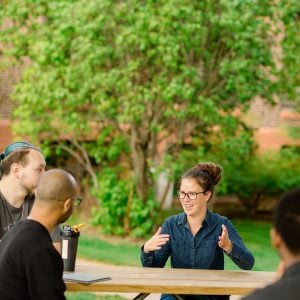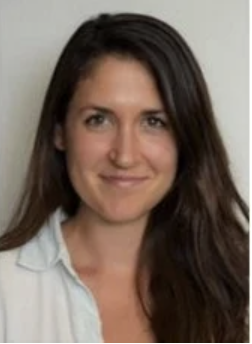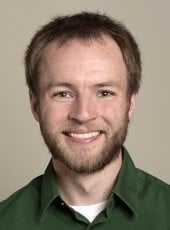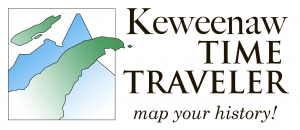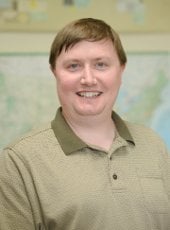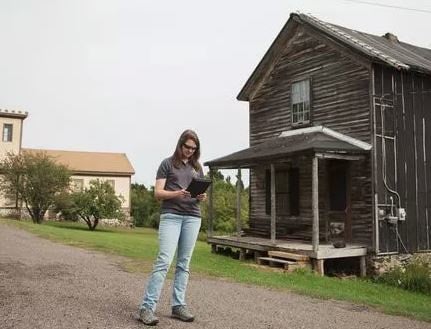Students and alumni from the Department of Social Sciences created the Chelsea Schelly Impact Fund in concert with the Keweenaw Community Foundation. The goal is to raise $75,000 for scholarships to new scholars from diverse backgrounds to explore innovative solutions to society’s most pressing challenges in sustainability, resilience, and social justice while celebrating professor of sociology Chelsea Schelly’s birthday and honoring her achievements.
The Chelsea Schelly Impact Fund targets scholars enrolled in tribal colleges, community colleges, and universities, and honors the work and legacy of Chelsea Schelly, whose groundbreaking contributions to the environment, sociology, and technology have paved the way for just transitions and regenerative practices.
“It is the honor of a lifetime to work with students who understand my core values, as a professional and a human. The students who took the initiative to establish this fund are providing an opportunity for future leaders to contribute to meaningful change by learning more about the intersection of social and environmental systems.”
Schelly takes a holistic approach to teaching, research, and community involvement. Schelly challenges the status quo and advocates for technological transitions that benefit communities. Schelly also mentors students, investing several hours each week helping them achieve their individual goals and complete research on society’s most complex and pressing issues. Schelly prepares students to participate in building a more sustainable, resilient, and just future through socio-technological transitions.
Learn more about the Chelsea Schelly fund.
About the Department of Social Sciences at Michigan Tech
Michigan Tech’s Department of Social Sciences offers bachelor of science degrees in Anthropology, Policy and Community Development, Sustainability Science and Society, and Social Science, along with a bachelor of arts degree in History. Our graduate program includes master’s and doctoral degrees in Industrial Heritage and Archaeology—the only program of its kind in the world—along with Environmental and Energy Policy. Our social sciences department also offers a master’s in Sustainable Communities. Plus, you can get a graduate certificate in Public Policy by taking three online courses in just one term.
Questions? Contact us at socialsciences@mtu.edu. Follow us on Facebook, Instagram, and Twitter for the latest happenings.
Steve Mintz is the marketing and communications manager for the College of Sciences and Arts at Michigan Tech.
